TL;DR
- Statutory compliance means following labour laws related to wages, safety, contracts, and benefits that apply to your business and employees.
- Non-compliance leads to fines, delays, and reputation loss, especially when filings, deductions, or records are missed or mismanaged.
- HR plays a key role across documentation, payroll, contract terms, audits, and coordination with legal or finance teams.
- Common challenges include frequent law updates, complex filing rules, state variations, and limited internal awareness across locations.
- TeamLease supports scale-ready compliance through staffing, payroll, legal advisory, tech tools, and training backed by domain expertise.
Introduction
As someone responsible for people, operations, or compliance, you’re often pulled between urgent tasks and long-term responsibilities. Legal compliance rarely waits, and the stakes are high. A single oversight can lead to audits, fines, or reputational damage that takes months to repair.
Staying on top of statutory requirements isn’t just about ticking boxes or filing paperwork. It’s about creating trust with employees, regulators, and leadership, while making sure your company doesn’t end up learning things the hard way.
In this blog, we’ll break down what statutory compliance means in the Indian context, why it matters, and what you’re expected to manage across roles.
What is Statutory Compliance?
Statutory compliance means following employment laws set by the central and state governments that apply to your workforce and workplace. It includes how you pay people, manage records, handle benefits, and provide safe working conditions as per legal requirements.
These laws apply to every business in India, whether you employ five people or five thousand across multiple states. Missing a legal deadline or misreporting data can lead to fines, disputes, or restrictions that hurt business continuity.
HR teams carry the day-to-day responsibility, but leadership is equally accountable when compliance is ignored or mishandled.
Why It Matters?
Legal gaps can trigger inspections, brand damage, or payment delays that disrupt employee trust and internal operations. Most penalties are avoidable, but they happen when compliance is seen as a checklist instead of a daily responsibility.
Employees are more likely to stay when policies, payments, and practices follow clear legal standards without confusion or delays. Staying compliant protects your business from risk and helps your people feel safe, heard, and fairly treated.
Now that you understand its importance, let’s explore the key statutory requirements you need to stay compliant with in India.
Core Statutory Requirements in India
There’s no shortage of labour laws, but certain acts apply to nearly every workplace and must be managed without exception.
HR and leadership must stay aware of these legal requirements to avoid penalties, payment issues, or employee disputes.
Here’s a clear breakdown of the major statutory obligations you’re expected to manage as an employer in India:
Wages and Working Conditions:
- Factories Act, 1948: Applies to premises with 10+ workers using power or 20+ without. Covers hours, safety, and working conditions.
- Minimum Wages Act, 1948: Sets wage floors for different job categories. Employers must pay at or above the notified rates, based on location and skill.
- Payment of Wages Act, 1936: Ensures employees are paid on the 7th or 10th of the month, depending on workforce size. Only approved deductions are allowed.
Job Security and Exit Terms:
- Industrial Disputes Act, 1947: Governs retrenchment, layoffs, and dispute resolution. Requires government approval for layoffs in firms with 100+ employees.
- Shops and Establishments Act: State-specific law covering working hours, leave, holidays, and closure processes for non-factory workplaces.
Social Security and Benefits:
- Employees’ Provident Fund (EPF): Mandatory for firms with 20+ employees. Requires 12% contributions from both employer and employee toward retirement savings.
- Employees’ State Insurance (ESI): Applies to firms with 10+ employees earning under INR 21,000/month. Covers health, maternity, and disability support.
- Gratuity Act, 1972: Applies after five years of continuous service. Must be paid within 30 days of exit, or interest applies.
- Maternity Benefit Act, 1961: Offers 26 weeks of paid leave and INR 3,500 medical bonus. Crèche facility required for offices with 50+ employees.
Equal Opportunity and Workplace Conduct:
- Equal Remuneration Act, 1976: Requires equal pay for men and women doing similar work under similar conditions.
- POSH Act, 2013: Requires Internal Committees in offices with 10+ employees. Mandatory reporting, awareness, and resolution of harassment complaints.
- PWD Act & Transgender Persons Act: Protects the rights of disabled and transgender individuals across hiring, retention, and the work environment.
Data, Tax, and Deductions:
- IT Act, 2000 + DPDP Act, 2023: Requires consent, protection, and transparency in how employee data is collected and stored.
- Professional Tax: Deducted based on state slabs. Required in states like Maharashtra, Karnataka, and West Bengal.
- TDS: Income tax deducted from salaries must be deposited monthly, with returns filed quarterly.
While these requirements are vital, it’s also crucial to formalise expectations with employees through clear employment contracts.
Employment Contracts
Employment contracts are not legally mandatory across India, but they protect both employer and employee from confusion or conflict.
Many states, including Karnataka and Delhi, require written contracts for certain job categories, especially for workmen under local labour rules.
Clear terms in writing help avoid disputes, delays, or legal trouble during exits, terminations, or disciplinary actions.
If your company hires across multiple locations, written contracts create consistency across HR processes and expectations.
Here’s what every employment contract should include to stay compliant and fair:
- Basic Details
- Names and addresses of both employer and employee.
- Job title, department, and a clear description of the role and reporting structure.
- Compensation and Benefits
- Monthly or annual salary, payment dates, bonus policies, and statutory deductions like PF or professional tax.
- Details of leave policy, insurance, gratuity, and other applicable benefits based on company policy and local laws.
- Work Conditions and Timing
- Work location, daily hours, weekly offs, and holiday policies.
- Rules for remote work, attendance, and shift timings, if applicable.
- Exit and Notice Terms
- Notice period for resignation or termination from either side.
- Conditions under which employment can be ended with or without notice or compensation.
- Legal and Ethical Clauses
- Confidentiality and data protection responsibilities during and after employment.
- Clauses on non-compete, conflict of interest, and dispute resolution process if disagreements arise.
Now that we’ve covered employment contracts, let’s explore the distinction between statutory and regulatory compliance to ensure full legal conformity.
Statutory vs. Regulatory Compliance
Statutory and regulatory compliance are related but not the same. Both carry legal weight, but they apply differently depending on your business.
Statutory compliance comes from laws passed by government bodies. Regulatory compliance comes from industry-specific authorities like SEBI or RBI.
Here’s a simple comparison to clarify the difference:
| Aspect | Statutory Compliance | Regulatory Compliance |
| Source | Laws passed by Parliament or State Assemblies | Rules issued by regulatory bodies (SEBI, RBI, IRDAI, etc.) |
| Scope | Applies to all businesses across sectors and locations | Applies to companies based on registration, license, or sector |
| Focus Areas | Wages, PF, ESI, Gratuity, Minimum Wages, Labour Laws | Financial disclosures, capital requirements, sector-specific operational rules |
| Examples | EPF Act, ESI Act, Minimum Wages Act, Payment of Bonus Act | SEBI Listing Obligations, RBI NBFC Guidelines, IRDAI Health Insurance Rules |
| Enforcing Bodies | Labour Departments, Tax Departments, Courts | Sector regulators like SEBI, RBI, IRDAI, etc. |
| Penalties for Breach | Fines, interest, audits, imprisonment, and business restrictions | Suspension of license, market bans, and financial penalties |
Now that you know the difference, let’s shift our focus to the crucial role HR plays in managing both statutory and regulatory compliance.
HR’s Responsibility in Compliance
HR carries direct responsibility for compliance across hiring, payroll, records, and employee experience. These tasks impact both legal standing and employee trust.
Compliance isn’t just about paperwork. It’s about daily decisions that quietly shape how fair, legal, and stable your workplace really is.
Here are the key areas where HR plays a central role:
Documentation and Record-Keeping
- Maintain updated records for attendance, wages, leave, contracts, and statutory filings as per local laws.
- Store documents securely and ensure they’re accessible during audits or employee queries without delay.
Statutory Deductions and Payments
- Deduct and deposit PF, ESI, TDS, and professional tax accurately and on time every month.
- File required returns (monthly, quarterly, yearly) with correct data to avoid notices or penalties.
Contract Management and Onboarding
- Issue clear, legally compliant offer letters and appointment contracts to all new hires.
- Verify and collect documents needed for PF, ESI, and ID creation during the onboarding process.
Compliance Calendar and Coordination
- Maintain a compliance calendar to track deadlines for filings, inspections, audits, and renewals.
- Coordinate with legal, payroll, and finance teams to close compliance tasks without duplication or delays.
Policy Updates and Law Awareness
- Stay informed of changes in central and state laws that affect employee rights and company obligations.
- Update internal policies and handbooks as soon as legal updates take effect, not after problems surface.
While HR plays a crucial role, it often faces numerous challenges in staying compliant across all areas of business operations.
Challenges Faced by Organisations
Even with good intentions, staying compliant isn’t always easy. Most gaps happen due to unclear rules, tight timelines, or missed state-specific requirements.
HR and leadership often discover compliance issues after a notice, fine, or employee grievance has already surfaced.
Here are the most common roadblocks companies face:
Frequent Law Changes
- Labour laws and tax rules are updated often, but official notices can be delayed, technical, or hard to track.
- State amendments may differ from central rules, leading to confusion for companies operating in multiple regions.
Complex Filing Requirements
- Monthly, quarterly, and annual filings vary across acts and authorities, each with different formats and deadlines.
- Errors in uploaded data or delayed filings often trigger penalties, even if the payment itself was made correctly.
Inconsistent Practices Across Locations
- Branches in different states may follow different versions of the same rule, based on local legal interpretations.
- Without a central process, audits and inspections reveal inconsistencies that could have been avoided.
Limited Internal Awareness
- Frontline managers and payroll teams may not fully understand which rules apply or how non-compliance affects operations.
- Without regular training, policies often become outdated or misapplied, creating silent risks across departments.
Overcoming compliance challenges may be difficult, but the benefits of staying compliant far outweigh the obstacles faced by businesses.
Benefits of Compliance
Compliance done well protects your business and supports a stable, trustworthy environment for everyone involved, from employees to external stakeholders.
Here’s how it helps across different areas:
- Employee Trust: Employee trust improves when wages, benefits, and workplace safety are managed legally without delays or confusion.
- Simpler Audits: Audits and inspections become faster and less stressful when records, filings, and documents are in order.
- Business Continuity: Business continuity is smoother when compliance gaps don’t stall operations, delay funding, or lead to external complaints.
- Fewer Disputes: Exit disputes and labour claims reduce when contracts, benefits, and payments follow clear legal guidelines.
- Stronger Reputation: Reputation improves with candidates, clients, and partners when your compliance record is clean and up to date.
- Better Internal Discipline: Internal accountability increases when managers and teams know they’re working within a stable, legal framework.
The rewards of compliance are significant; now, let’s focus on the practices you should adopt to stay compliant effortlessly.
Best Practices for Statutory Compliance
Consistency matters more than complexity when it comes to compliance. Simple habits done on time can help avoid most legal issues.
Here are practices that help teams stay on track:
- Maintain a Compliance Calendar: Track due dates for filings, audits, registrations, and license renewals across all laws that apply to your business.
- Use Purpose-Built Tools: Payroll and compliance software help reduce human error, missed deductions, and forgotten filings without replacing human checks.
- Train the Right People: Regularly train HR, payroll, and operations teams on changes to laws, filing procedures, and documentation standards.
- Standardise Across Locations: Create uniform processes and documentation practices across offices, especially when you operate in more than one state.
- Audit Internally: Conduct regular internal reviews of records, filings, and processes before a third-party inspection catches something preventable.
- Work With Experts When Needed: Engage legal or compliance professionals for high-risk filings, state-specific laws, or sudden legal disputes that require clarity.
By following these best practices, your organisation can simplify statutory compliance. Let’s explore how TeamLease can support you in scaling these efforts.
Enabling Compliance at Scale With TeamLease
Managing compliance across multiple states, functions, and teams requires more than checklists; it calls for structure, accountability, and the right support.
TeamLease helps HR and business leaders handle workforce compliance with services that are built for large-scale, multi-location operations.
Here’s how TeamLease supports compliant, stable, and people-first workplaces:
- Professional Staffing and Payroll Services: A 200+ member team manages hiring across functions and industries while handling payroll, statutory filings, and multi-country compliance.
- AI-Supported Hiring Tools: Recruitment systems powered by AI reduce time-to-hire and help improve sourcing accuracy while meeting compliance across hiring touchpoints.
- HR Tech Marketplace: The platform connects companies with 450+ HR tech solutions tailored to specific business sizes, sectors, and compliance goals.
- HR Advisory and Consulting: Teams help review and redesign HR processes to reduce risk, improve workflows, and align with legal requirements.
- Enterprise Learning Services: With over 10,000 trainers, TeamLease delivers learning programs in technical and behavioural areas tied to compliance and skill-readiness.
Have questions or need personalised guidance? Contact us now to discuss how we can help you manage compliance effectively.
Conclusion
Compliance isn’t a one-time task; it’s a habit that protects your people, your brand, and your business from unnecessary risks.
When done consistently, it builds confidence across teams, reduces stress during audits, and keeps operations running without legal friction.
If managing compliance feels scattered or time-consuming, it doesn’t have to stay that way.
Book a demo with TeamLease to see how we support compliance across hiring, payroll, policies, and workforce systems, without adding to your workload.
FAQs
Q: What does statutory compliance actually cover in India?
A: It covers labour laws related to wages, benefits, working hours, safety, contracts, and taxes that apply to your workforce and operations.
Q: Who is responsible for handling compliance inside a company?
A: HR usually manages filings and records, but legal and finance teams also play a role depending on the law and business structure.
Q: What are the risks if we miss a statutory deadline?
A: You could face fines, government notices, interest charges, or delays in operations like payroll, contract renewals, or vendor approvals.
Q: How often do these laws change, and how should I track them?
A: Some rules change annually, while others update mid-year. A compliance calendar or legal partner can help track dates and updates.
Q: How can TeamLease help with compliance?
A: TeamLease handles staffing, payroll, audits, tech tools, and training, all built to help companies meet their legal obligations without extra load.







